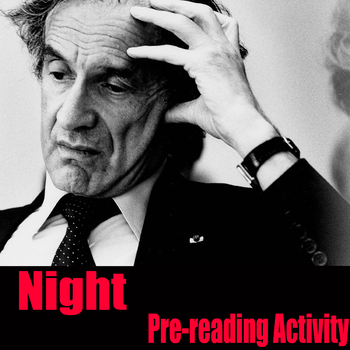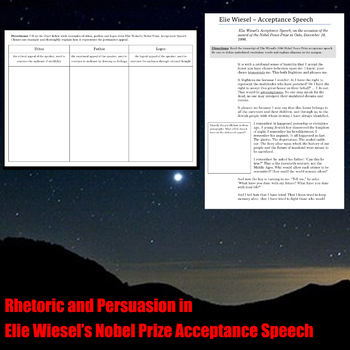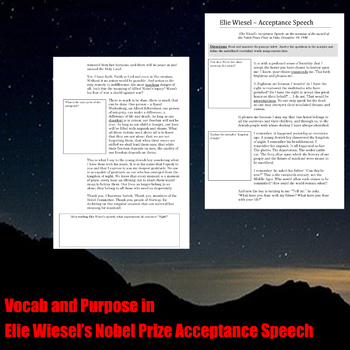Elie Wiesel Nobel Prize Speech ~ Night Pre-reading activity
- Word Document File
Description
Night is the heart wrenching first hand account of Elie Wiesel's internment in the Auschwitz Camp during the Holocaust. In order to truly lead into the novel, it is important to impress upon students that Elie Wiesel spent his life devoted to reversing racism around the globe. Reading his Nobel Prize Acceptance speech will do just that.
To accommodate scaffolding, I have included one version that caters to teaching persuasion and rhetorical analysis and a second that asks questions pertaining to author purpose, structure and vocab. Each word document is formatted with wider margins to make more room for notes and annotations.
Also included is an Ethos Pathos and Logos jot chart. Simply replace the text title in the directions and you have a persuasion chart to use with any text!
I believe the sensitivity of this topic requires two class periods. The first to read and annotate the text itself. The second to discuss the very dense material within the words.
For more ground breaking voices including Martin Luther King, Jr, FDR and Greta Thunberg, visit my Speeches and Resources Page.
**Google Doc Version for distance learning is linked on the first page of the document!




